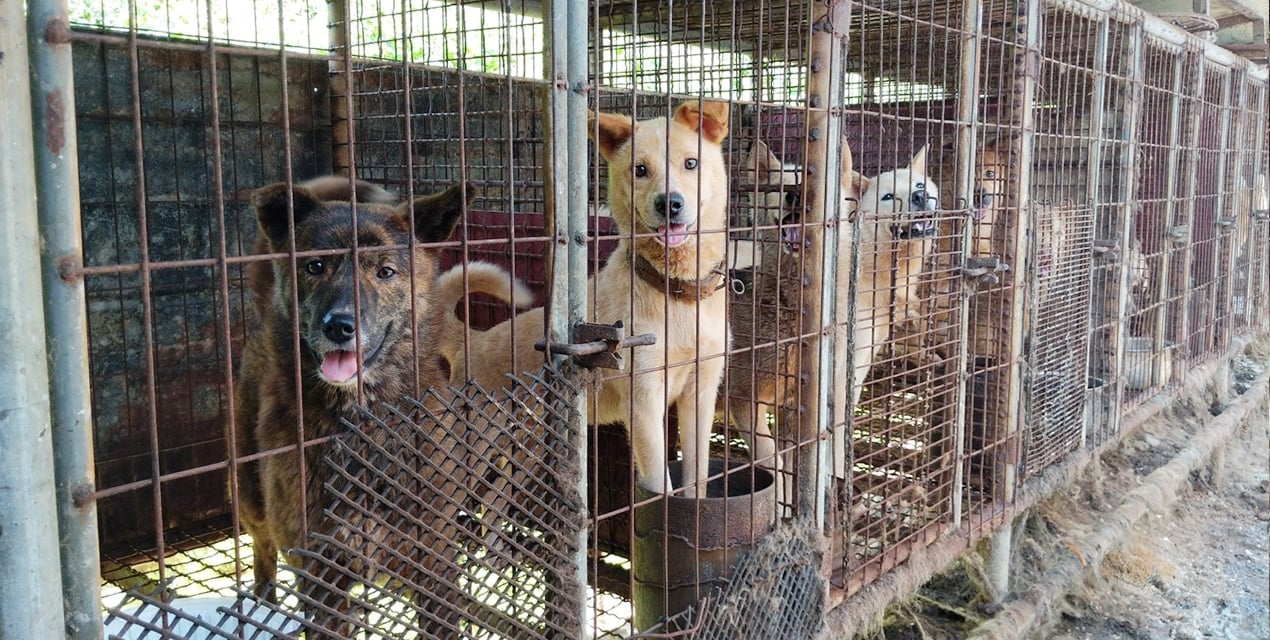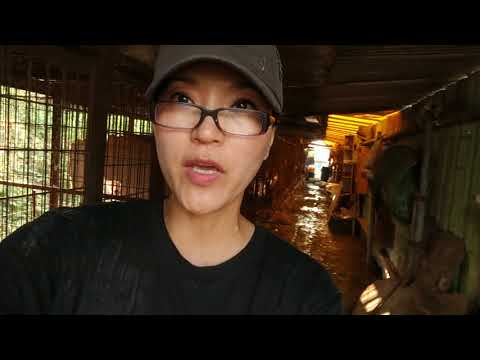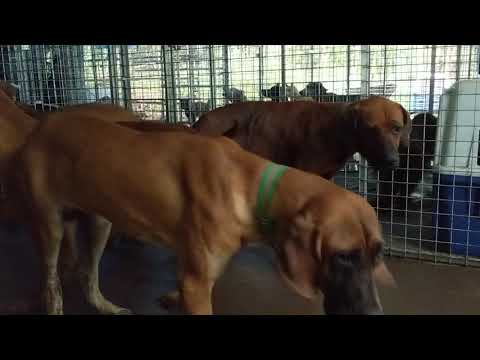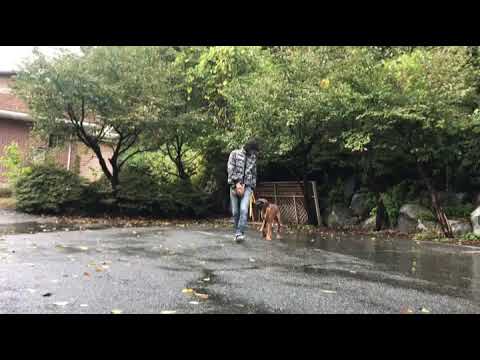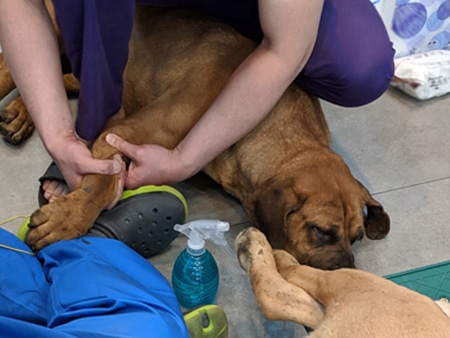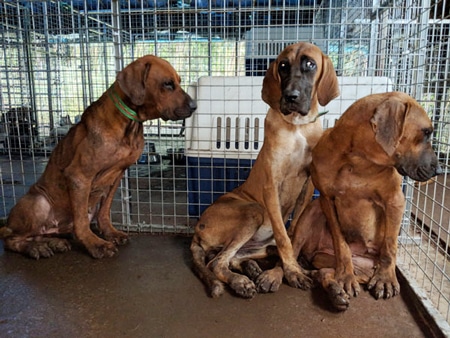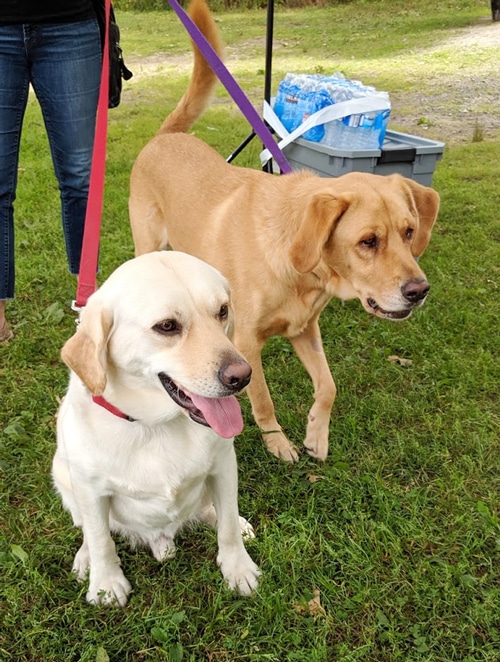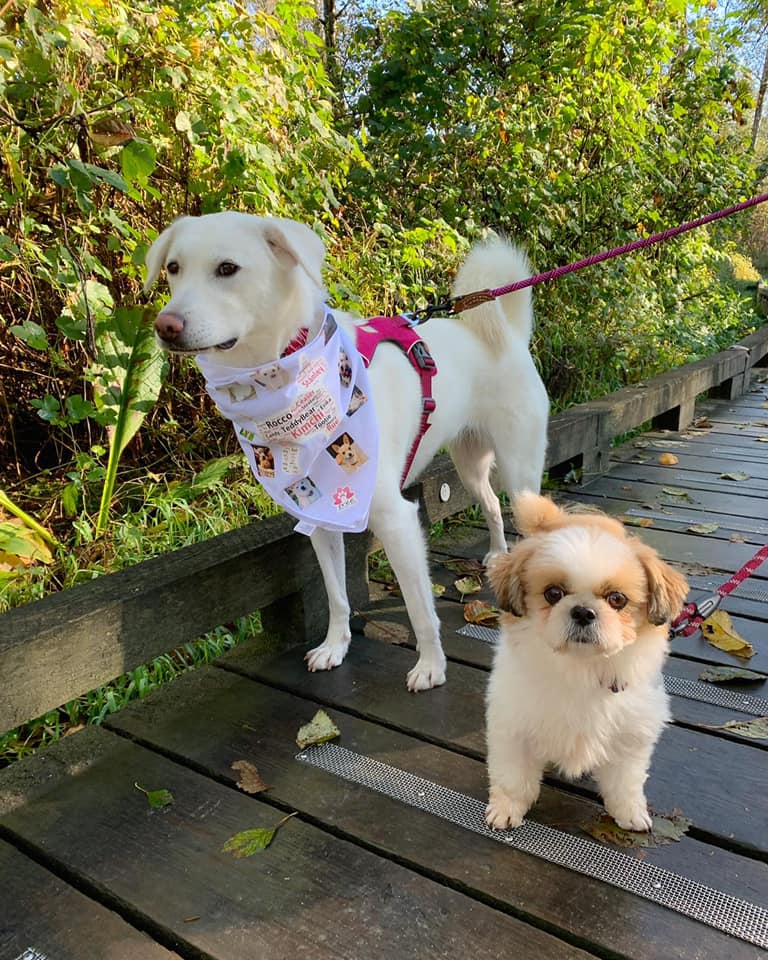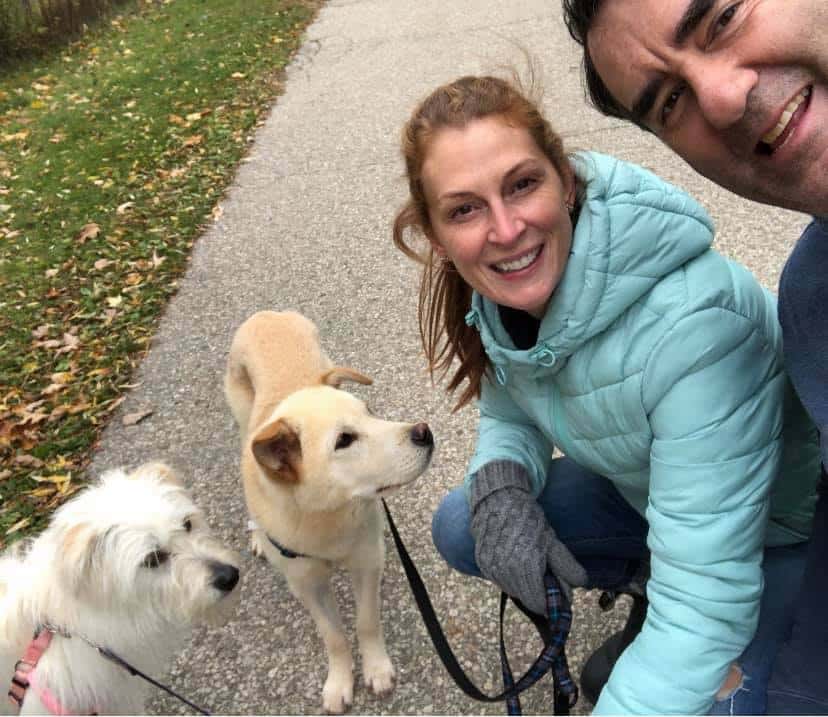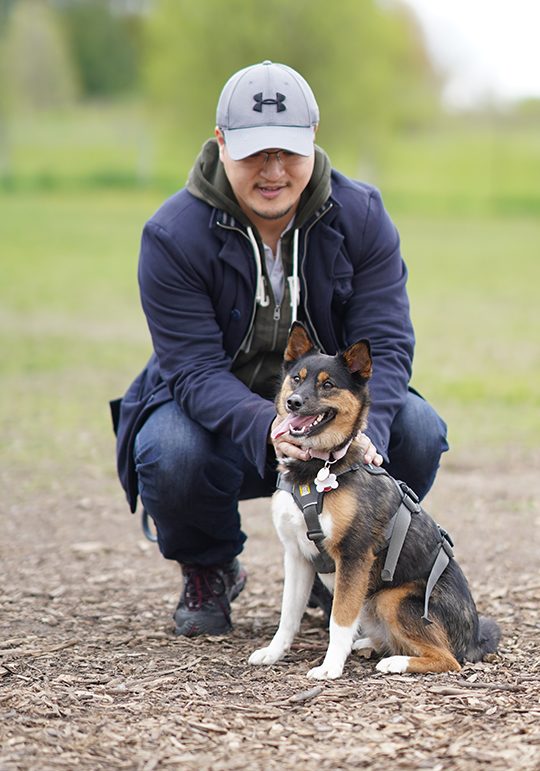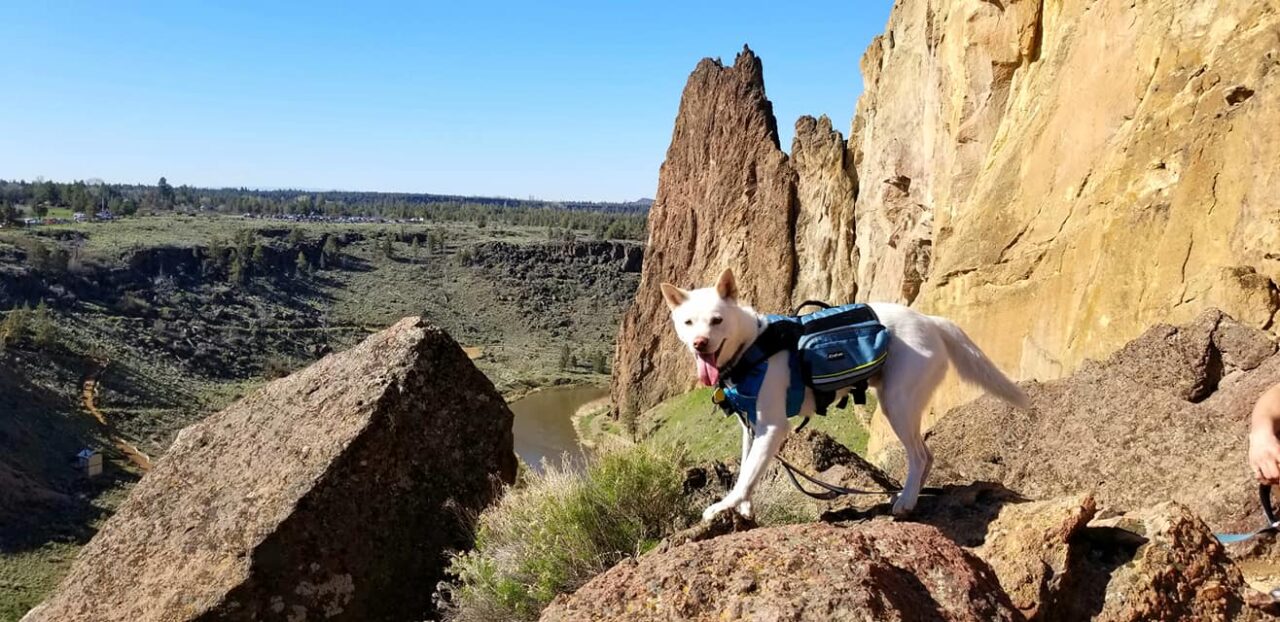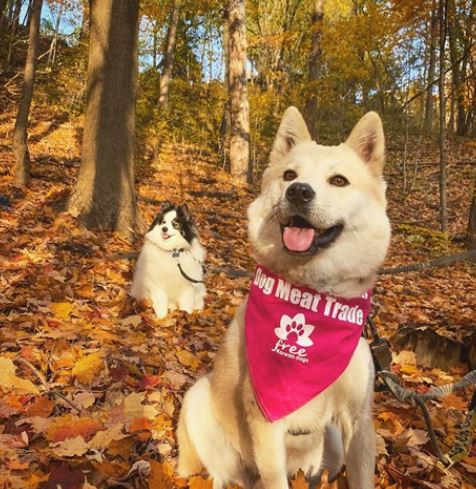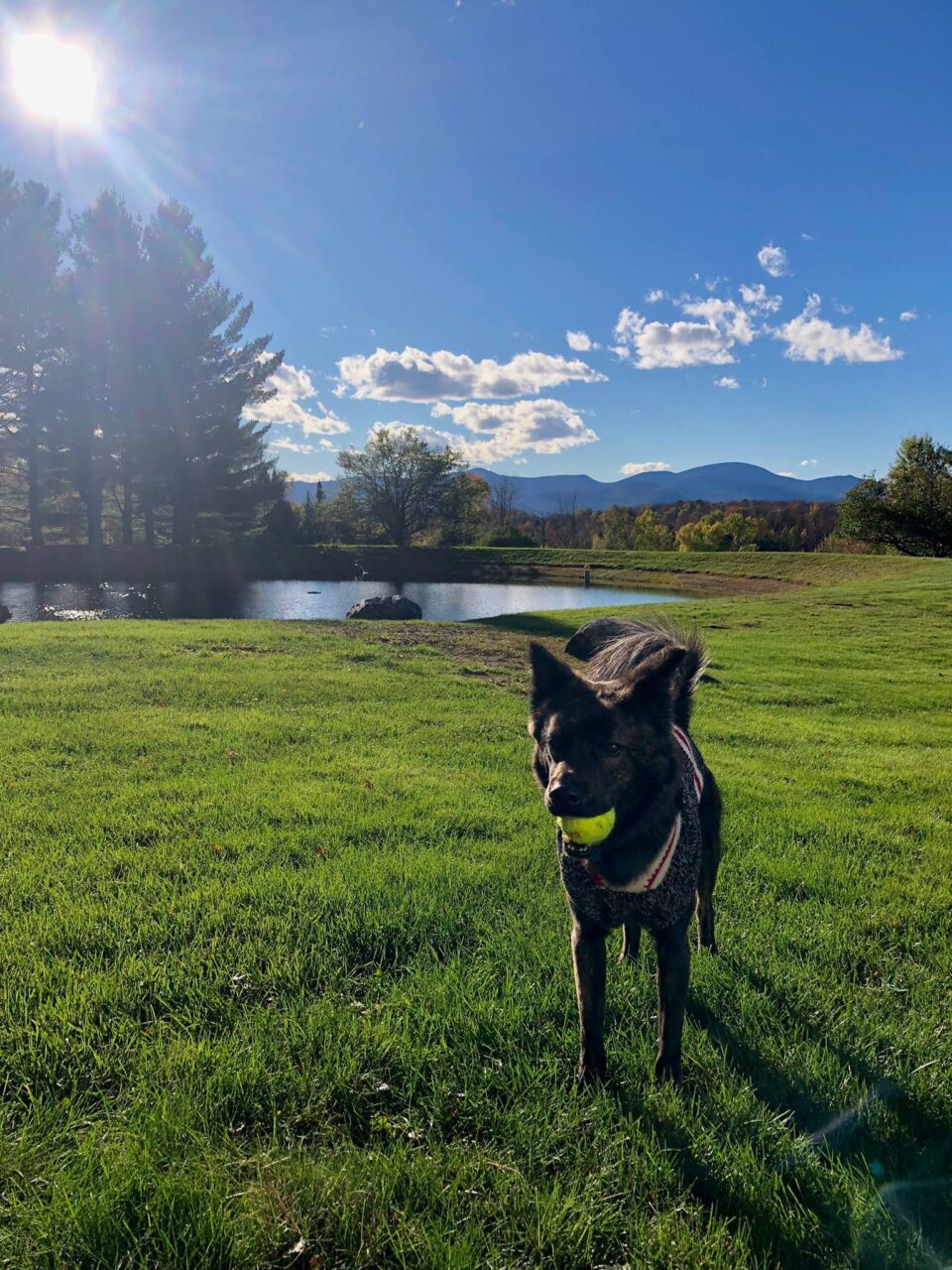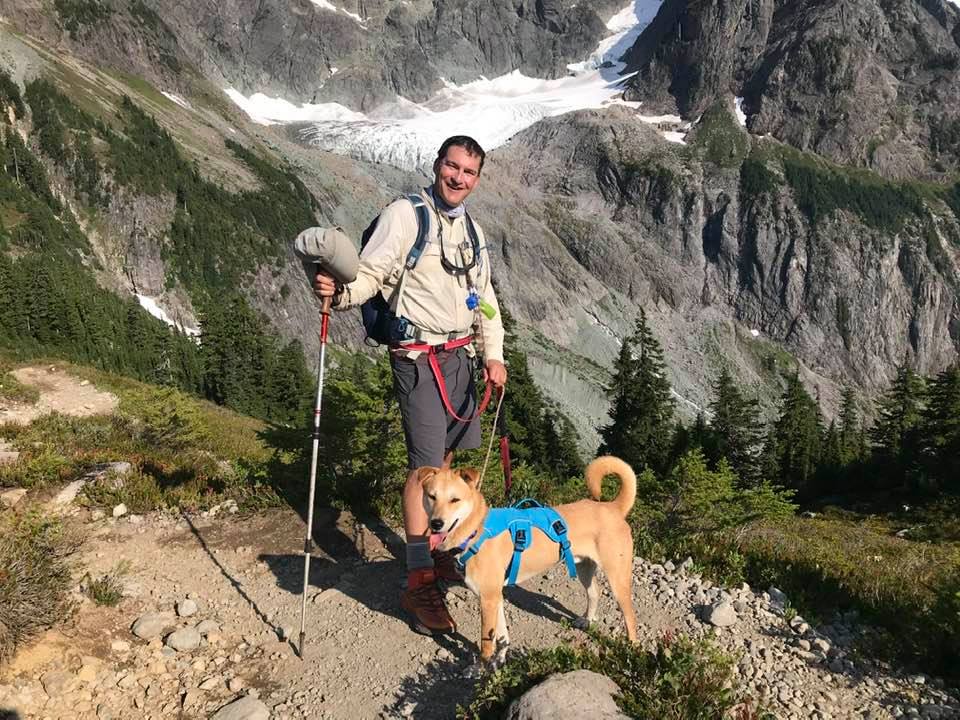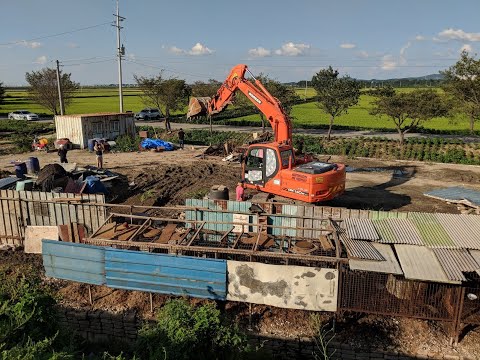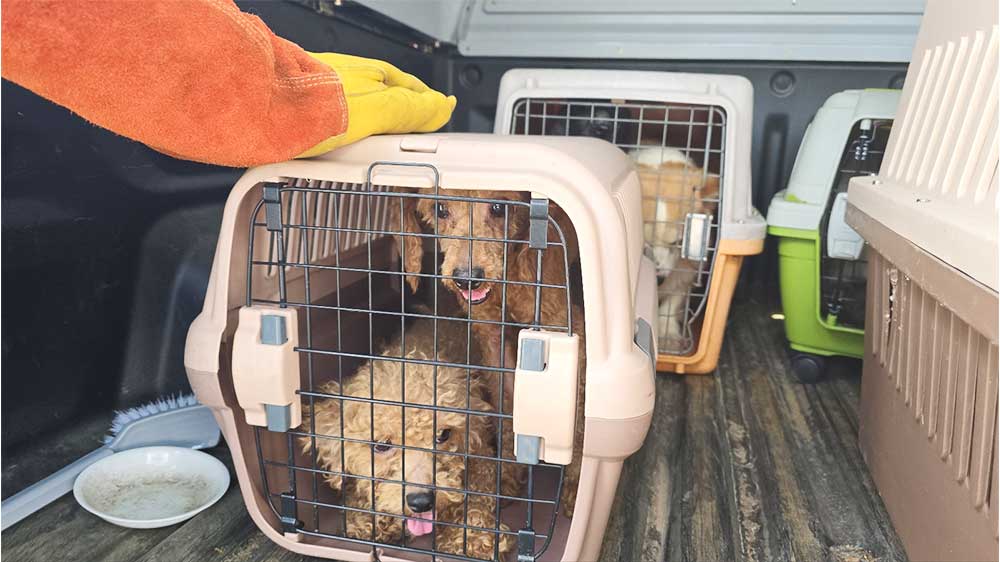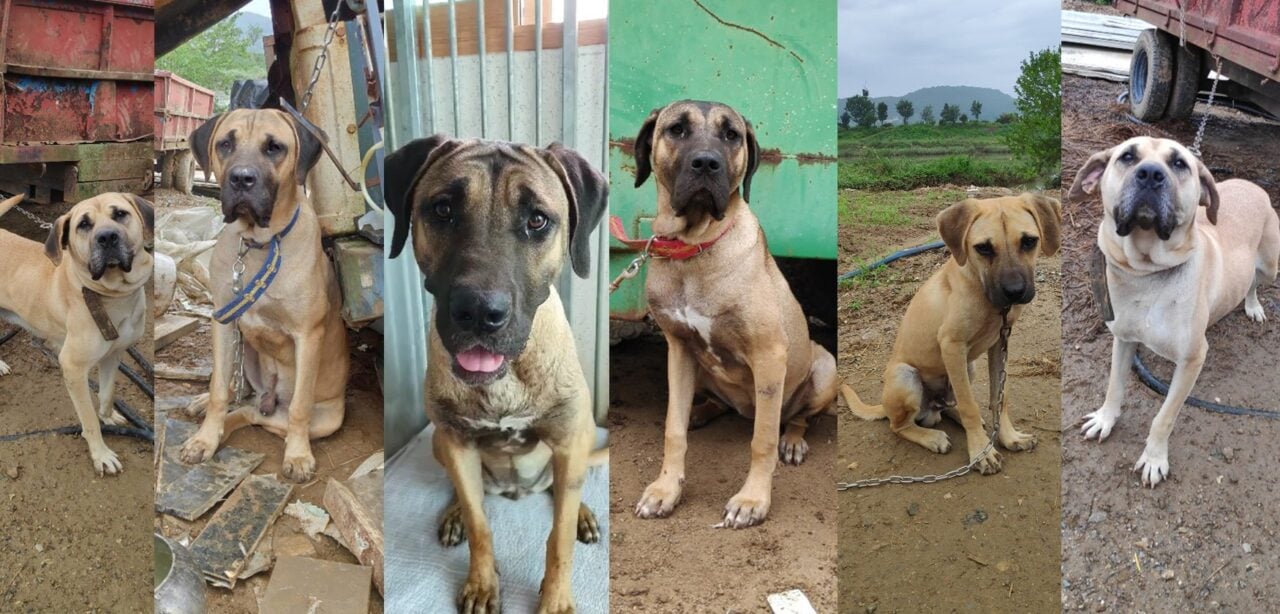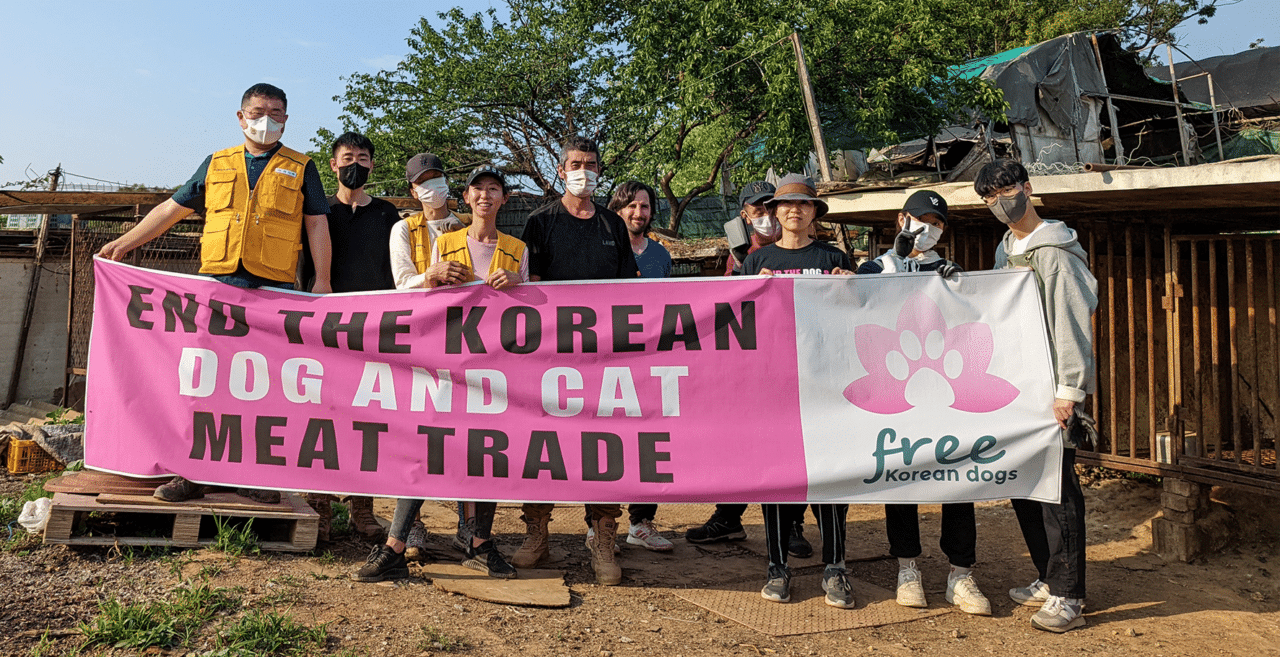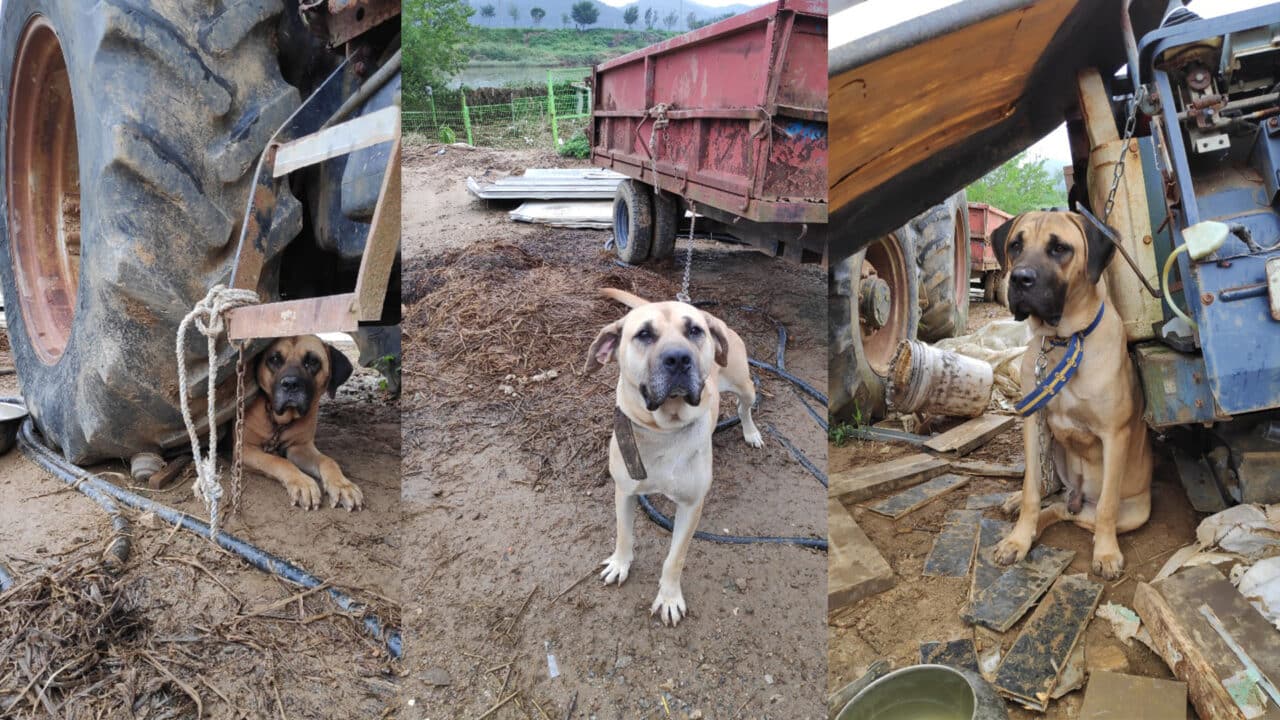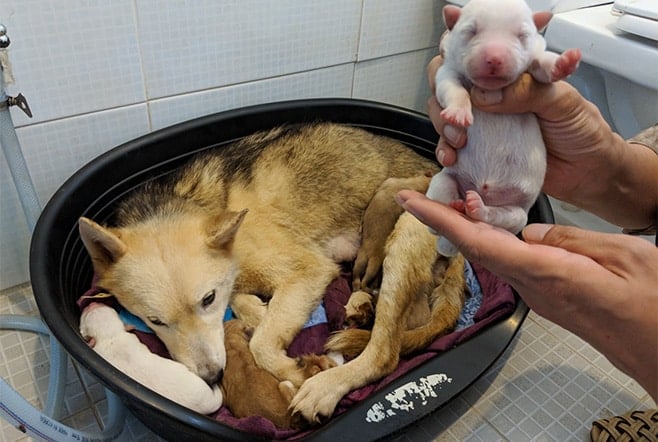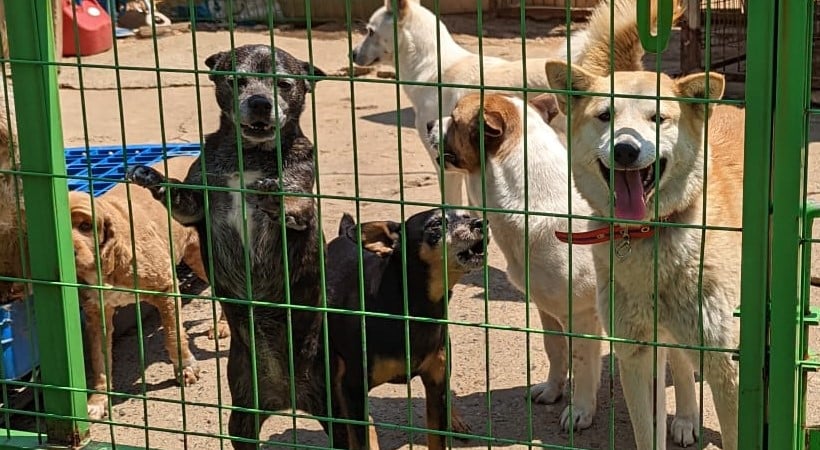So, You Want to Shut Down a Dog Meat Farm?
We wish it was as simple as saving all the dogs and finding them forever homes. But in truth, it’s a scramble to put many puzzle pieces together to make the endeavor a successful one. It’s the reason it took us 2 years to prepare for it, and why we’re still talking about it 2 years later.
In theory, the dynamics of shutting down a dog meat farm is relatively straight forward. The terms of closure are negotiated and finalized with legal contracts. The rescue team enters and removes all dogs from the farm. The farm is demolished for good. The dogs are provided with needed medical attention and go on to find their forever homes with adoptive families abroad. Rescue. Rehabilitate. Rehome.
In practice, every stage of the process has its unique set of challenges. We could theoretically save a million lives, but that would still mean a million homeless dogs. They would not truly be “rescued” unless they had somewhere to go in the short and long term. The system is not sustainable without the support of a like-minded community working together towards a common goal, and loving adoptive families who readily accept the dogs into their homes as one of their own.
Rescue
When we shut down the Dangjin dog meat farm, we committed to a “no dog left behind” policy, devoted to providing sanctuary for all our rescued dogs regardless of their circumstances in the present or future. Liberating the farm could arguably be the easiest part. It was the beginning of a union bound by the promises of “for better or for worse, for richer or for poorer, in sickness and in health”.
The unfortunate fact is that 20-30% of dogs rescued from dog meat farms are euthanized due to behavioral concerns and/or complicated medical issues. While all who are involved in dog rescue have the best intentions, the reality is that shelters simply do not have the space, resources, and finances to sustain the needs of the overwhelming number of homeless dogs. On average, the cost to rescue a single dog can range anywhere between $2000 to $4000 (CDN) in immediate costs, and approximately $500-$1000 in ongoing monthly expenses thereafter. We’ve seen and dealt with it all, some of them resolved, some of them ongoing – from heartworms, mange, parvo, tumors, to kidney and enteropathy conditions.
Rehabilitate
After saving the dogs from the living nightmare, a safe space is needed for recovery and decompression. But where? Shelters are not ideal settings for dogs, and in a country where they are overburdened due to low adoption and high surrender rates, this makes the task all the more challenging. 1 in 4 dogs does not survive the 10-day waiting period in city pounds, where they are euthanized if unclaimed within that time. These statistics do not include non-city-run facilities.
In no-kill shelters, the overwhelming demand for intake means shelters are inevitably overrun, with some of our partners caring for over 300 dogs at any given time. Temporary fences and kennels are often erected nearby to accommodate the overflow, but also risk municipal-mandated shutdown orders and fines. Shelters are run on skeletal financial and human resources, with dogs living in outdoor facilities 24/7 and little opportunity for activities such as walks. In fact, weekends are the dogs’ favorite days, when volunteers arrive to give them the attention they so sorely crave. Due to the vast differences in animal welfare and dog culture between Korea and “the West”, where owning dogs as personal companions is still a developing concept in the former, much less adoption, donations, and support of animal shelter initiatives are still largely uncommon in Korean civil society.
Needless to say, finding accommodations for our dogs – stigmatized dog meat rescues, no less – is no easy feat. We too had to build temporary shelters and divide our dogs between 3 shelters, driving over 6 hours to transport them in some cases. But the effort was worth it. We have been fortunate to work with some of the most dedicated groups and individuals who are now caring for our Dangjin and Boknal rescues. As the dogs continue to heal and find their forever homes, those living in more remote and pauperized shelters will be triaged again into locations with the resources that allow them to rehabilitate; a necessity for many rescued from the trade following the trauma endured. However, we do concede that some dogs will have to remain in the sanctuary for the remainder of their lives, be it because they are too emotionally scarred to be able to take a trip across the ocean, or too large in size for airline transportation restrictions (these dogs would only be permitted to fly by cargo, which would cost upwards of $7000 per dog)
These challenges overlap with the dog training sphere as well. Where there is less dog ownership and high surrender potential for behavioral issues, there is less demand for professional trainer services and subsequently fewer training facility options. Many trainers are also not equipped or up for the challenge of dealing with fear-based aggressive dogs, especially large-size dogs. However, that’s not to say they don’t exist, because we have found amazing individuals who have worked wonders with our rescues.
The same shortcomings apply to veterinary care, especially surrounding Dosas. Also known as the Korean Mastiff, the Dosa is widely known as a “meat dog” and is often bred for consumption on farms. These beautiful, gentle giants have long been stigmatized as being feral and aggressive, and are frequently denied vet care in many practices, citing safety concerns. We have, as a result, been forced to travel hundreds of kilometers to access basic vet care such as vaccinations and spays/neuters for our dosas. Professionals willing to work with Dosas and meat farm rescues in general remain few and far between and at a premium cost.
Rehome
The issue of homeless pets and strained shelters is a case in point situation of why international adoption programs are necessary. The national culture has not developed far enough to help alleviate the issue. Dog ownership (as companion animals) and adoption rates remain low, as do personal and financial support for shelter facilities and animals. Without international adoption programs, an even greater strain is put on the system.
The effects of the current COVID-19 pandemic have certainly caused more cracks to surface. International travel restrictions and reduced flight availability have significantly impacted our ability to transport our dogs via flight escort volunteers, subsequently hindering our ability to clear our shelters. With the alternative option of cargo flights at a significantly higher cost which continues to rise monthly, it has become increasingly difficult to sustain transportation capabilities.
So, You Still Want to Shut Down a Dog Meat Farm?
We won’t lie. It’s been an unparalleled emotional, physical, and financial rollercoaster ride. Yet, we have no regrets. It’s easy to get discouraged by all the challenges, but the good always far outweighs the bad. There will be tears. Many tears. This is inevitable, but not all of them will be tears of sorrow. The seemingly simplest things, like a rescue being able to lie on green grass for the first time, will ignite a fountain of happy tears.
In the end, the end of the dog meat trade comes only when there are legal animal protection laws that are consistently enforced, and more importantly, a cultural shift that no longer produces a demand for dog meat or underground black markets despite legal bans. But that doesn’t mean our efforts are futile. The movement exists in Korea and momentum is building.
Would we do it again? Absolutely. In fact, if we can dot our Is and cross our Ts (and perhaps with the help of some aligned stars), we would be prepared for our next venture sometime in 2021. Will you join us? As they say, it takes a village to save a dog, and whether supporting us hands-on, through donations, or in spirit, together we will change the worlds of these meat farm dogs.
(At the time of writing, 45 out of 89 of our dog meat rescues from our Dangjin and Boknal rescue remain in Korea. We continue to support them in every aspect of their lives until they are ready for the next chapter)
Subscribe for Updates
Get our dogs in your inbox once a month, along with our latest news and events. We never send spam, and you can opt out at any time.
